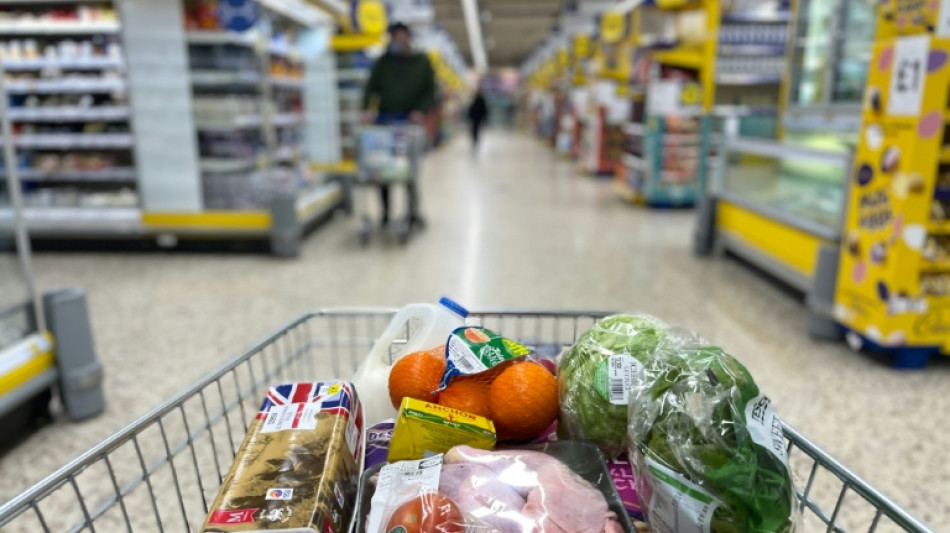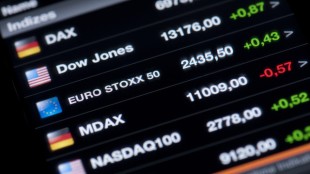
-
 Sarr strikes as Palace end winless run at Brighton
Sarr strikes as Palace end winless run at Brighton
-
Olympic star Ledecka says athletes ignored in debate over future of snowboard event

-
 Auger-Aliassime retains Montpellier Open crown
Auger-Aliassime retains Montpellier Open crown
-
Lindsey Vonn, skiing's iron lady whose Olympic dream ended in tears

-
 Conservative Thai PM claims election victory
Conservative Thai PM claims election victory
-
Kamindu fireworks rescue Sri Lanka to 163-6 against Ireland

-
 UK PM's top aide quits in scandal over Mandelson links to Epstein
UK PM's top aide quits in scandal over Mandelson links to Epstein
-
Reed continues Gulf romp with victory in Qatar

-
 Conservative Thai PM heading for election victory: projections
Conservative Thai PM heading for election victory: projections
-
Heartache for Olympic downhill champion Johnson after Vonn's crash

-
 Takaichi on course for landslide win in Japan election
Takaichi on course for landslide win in Japan election
-
Wales coach Tandy will avoid 'knee-jerk' reaction to crushing England loss

-
 Sanae Takaichi, Japan's triumphant first woman PM
Sanae Takaichi, Japan's triumphant first woman PM
-
England avoid seismic shock by beating Nepal in last-ball thriller

-
 Karl defends Olympic men's parallel giant slalom crown
Karl defends Olympic men's parallel giant slalom crown
-
Colour and caution as banned kite-flying festival returns to Pakistan

-
 England cling on to beat Nepal in last-ball thriller
England cling on to beat Nepal in last-ball thriller
-
UK foreign office to review pay-off to Epstein-linked US envoy

-
 England's Arundell eager to learn from Springbok star Kolbe
England's Arundell eager to learn from Springbok star Kolbe
-
Czech snowboard great Ledecka fails in bid for third straight Olympic gold

-
 Expectation, then stunned silence as Vonn crashes out of Olympics
Expectation, then stunned silence as Vonn crashes out of Olympics
-
Storm-battered Portugal votes in presidential election run-off

-
 Breezy Johnson wins Olympic downhill gold, Vonn crashes out
Breezy Johnson wins Olympic downhill gold, Vonn crashes out
-
Vonn's Olympic dream cut short by downhill crash

-
 French police arrest five over crypto-linked magistrate kidnapping
French police arrest five over crypto-linked magistrate kidnapping
-
Late Jacks flurry propels England to 184-7 against Nepal

-
 Vonn crashes out of Winter Olympics, ending medal dream
Vonn crashes out of Winter Olympics, ending medal dream
-
All-new Ioniq 3 coming in 2026

-
 New Twingo e-tech is at the starting line
New Twingo e-tech is at the starting line
-
New Ypsilon and Ypsilon hf

-
 The Cupra Raval will be launched in 2026
The Cupra Raval will be launched in 2026
-
New id.Polo comes electric

-
 Iran defies US threats to insist on right to enrich uranium
Iran defies US threats to insist on right to enrich uranium
-
Seifert powers New Zealand to their record T20 World Cup chase

-
 Naib's fifty lifts Afghanistan to 182-6 against New Zealand
Naib's fifty lifts Afghanistan to 182-6 against New Zealand
-
Paul Thomas Anderson wins top director prize for 'One Battle After Another'

-
 De Beers sale drags in diamond doldrums
De Beers sale drags in diamond doldrums
-
NFL embraces fashion as league seeks new audiences

-
 What's at stake for Indian agriculture in Trump's trade deal?
What's at stake for Indian agriculture in Trump's trade deal?
-
Real Madrid can wait - Siraj's dream night after late T20 call-up

-
 Castle's monster night fuels Spurs, Rockets rally to beat Thunder
Castle's monster night fuels Spurs, Rockets rally to beat Thunder
-
Japan votes in snow-hit snap polls as Takaichi eyes strong mandate

-
 Pakistan's capital picks concrete over trees, angering residents
Pakistan's capital picks concrete over trees, angering residents
-
Berlin's crumbling 'Russian houses' trapped in bureaucratic limbo

-
 Neglected killer: kala-azar disease surges in Kenya
Neglected killer: kala-azar disease surges in Kenya
-
Super Bowl set for Patriots-Seahawks showdown as politics swirl

-
 Sengun shines as Rockets rally to beat NBA champion Thunder
Sengun shines as Rockets rally to beat NBA champion Thunder
-
Matsuyama grabs PGA Phoenix Open lead with Hisatsune one back

-
 How Dental Implants Can Improve Your Quality of Life in Bonita Springs
How Dental Implants Can Improve Your Quality of Life in Bonita Springs
-
Washington Post CEO out after sweeping job cuts


Study shows environmental impact of 57,000 products sold in supermarkets
Eating fruits and vegetables is better for the planet than eating meat and cheese, but a new study by scientists released Monday showed chips and sugary drinks also have a very low environmental impact.
Scientists analyzed some 57,000 products sold in supermarkets in Britain and Ireland, in a large study published by the scientific journal PNAS.
The researchers, who hope that their study may allow consumers to shop more sustainably without sacrificing anything to their health, also compared the results with the nutritional qualities of these foods.
They found that juice concentrates, sodas or other fruit juices are among the products sold with the lowest environmental impact -- because they are mostly composed of water -- but their nutritional quality is poor.
Researchers believe that in general, the more sustainable a food is, the better it is from a nutritional point of view.
The study confirms what other previous reports had already advanced by analyzing single ingredients, such as fruits or red meat.
The novelty of the latest report is that its analysis relates to products made up of multiple ingredients, such as sauces, prepared meals, and others.
That task was complicated by the fact that the quantity of each ingredient is considered a trade secret, and therefore no real details are disclosed: Only about three percent of the more than 57,000 products sold by eight food retailers had their composition fully disclosed.
Scientists responded by developing an algorithm based on the few known pieces of information to evaluate the missing products -- in Britain and Ireland, ingredients are notably listed in order of quantity used.
To assess the environmental impact, four factors were considered: greenhouse gas emissions, use of limited water resources, land use, and eutrophication, which is when waterways are enriched with minerals and nutrients, mostly from fertilizers.
Bread, but also certain cereals and prepared meals or desserts, have a relatively low or intermediate environmental impact.
On the other hand, fish, cheese and meat -- especially red meat -- have a high impact.
"Replacing meat, dairy, and eggs with plant-based alternatives could have large environmental and health benefits," the study notes.
But "smaller" transitions can also help. For example, beef lasagna, with a high environmental impact, could be replaced by chicken or pork lasagna, or vegetarian.
In the future, better knowing the proportions and origin of different ingredients would help to determine more precisely their impact on the environment, the researchers said.
P.Costa--AMWN


